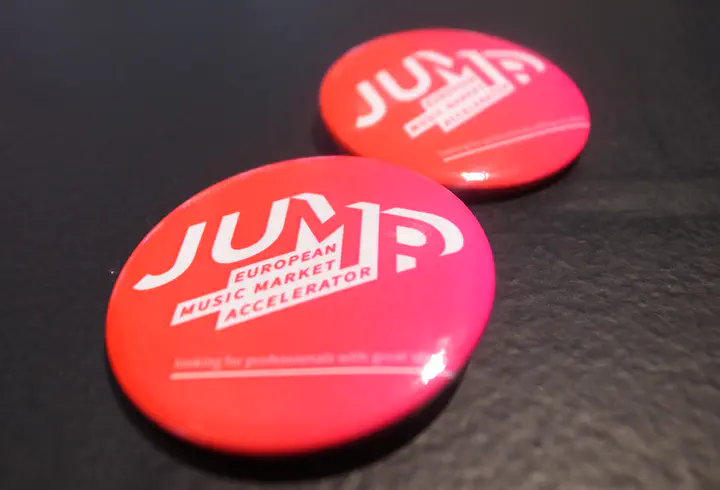Jumping Ahead With the Digital Music Observatory
The Digital Music Observatory in the JUMP European Music Market Accelerator

Our Digital Music Observatory project spent a year in the JUMP Music Market Accelerator’s program. Over the course of 9 months, co-founder Daniel Antal could meet many stakeholders from almost all European countries, meet other new music technology startups and projects, and got mentoring and other professional help to further develop the project.
The Digital Music Observatory is one of the several initiatives to fill the data gaps of the fragmented European music ecosystems. While most of Europe’s music is available and promoted on data-heavy, AI-driven autonomous platforms like TikTok, Spotify, YouTube, Deezer, music labels, publishers, national export offices are lacking the necessary data solutions to remain competitive.
.](/media/img/blogposts_2021/Daniel_Antal_JUMP_Linecheck_20211124_hubb7c99a8a93f52fd801facb5ffd737fb_546622_3654cf264af950c9a3f1454f74ad2286.webp)
One of the recurring themes of 2021 was the notion that the music streaming economy is broken. Several JUMP fellows are working on various projects that aim to fix this, and our Digital Music Observatory has both the data and track record to provide evidence and test ideas about possible solutions – change in pricing, better targeting in export and domestic markets, and checking for algorithmic biases. See what we have done in the field this year in the UK IPO-initiated Music Creators’ Earning project; understanding algorithmic recommendation problems with the support of the Slovak Arts Council, and making recommendations about better music metadata and copyright regulation with our research consortium.
The other very interesting theme of the year was the emergence of new, immersive music tech companies. We hope that our Digital Music Observatory can grow into a hub for their data needs, too. How is the world of 2.7 billion gamer and music lovers is forming a new market for Ristband? We would also like to curate data about the healing effects of sound, and work in the future with immersive, functional music providers like Flower of Sound who place music and sound design into a less stressful, more healthy acoustic environment.
We were often criticized for placing too little emphasis on data visualization. Our next priority is to provide clear, beautiful infographs and charts to all of our datasets.
There were many professionals who helped us in the JUMP program. We are particularly thankful for Alessanra di Caro (partnership building), Elodie Crouzet (program coordination), Steve Farris (mentoring), Veronique Friedrich (team building), Thierry Giesler (improving our pitch) and Anna Zò (Music Tech Europe).
Are you a data user? Give us some feedback! Shall we do some further automatic data enhancements with our datasets? Document with different metadata? Link more information for business, policy, or academic use? Please ive us any feedback!